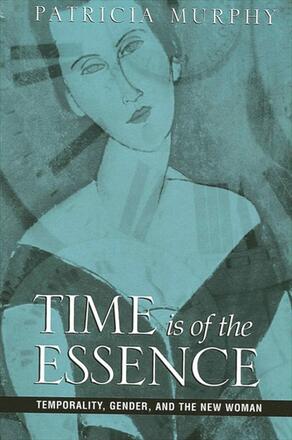
Time Is of the Essence
Temporality, Gender, and the New Woman
Alternative formats available from:
Examines the intricate relationships between time and gender in the novels of five fin-de-siecle British writers--Thomas Hardy, Olive Schreiner, H. Rider Haggard, Sarah Grand, and Mona Caird.
Description
In Time Is of the Essence, Patricia Murphy argues that the Victorian debate on the Woman Question was informed by a crucial but as yet unexplored element at the fin de siècle: the cultural construction of time. Victorians were obsessed with time in this century of incessant change, responding to such diverse developments as Darwinism, a newfound faith in progress, an unprecedented fascination with history and origins, and the nascent discipline of evolutionary psychology. The works examined here—novels by Thomas Hardy, Olive Schreiner, H. Rider Haggard, Sarah Grand, and Mona Caird—manipulate prevalent discourses on time to convey anxieties over gender, which intensified in the century's final decades with the appearance of the rebellious New Woman. Unmasking the intricate relationship between time and gender that threaded through these and other works of the period, Murphy reveals that the cultural construction of time, which was grounded in the gender-charged associations of history, progress, Christianity, and evolution, served as a powerful vehicle for reinforcing rigid boundaries between masculinity and femininity. In the process, she also covers a number of other important and intriguing topics, including the effects of rail travel on Victorian perceptions of time and the explosion of watch production throughout the period.
Patricia Murphy is Assistant Professor of English at Missouri Southern State College.
Reviews
"…challenges standard readings and reveals the near obsession with time of the age's feminists, who wanted, first, to free women from a compulsory 'natural order of time' and, second, to free narrative from the tight-corseting constraints of Victorian realism. " — CHOICE
"This beautifully written book offers fresh and compelling readings of a set of novels that are central to turn-of-the-century debates about the New Woman and to the body of scholarship on the New Woman novel that has burgeoned since the 1980s. No other study of New Woman writings provides the blending of approaches that Murphy's does—and that makes hers such an interesting and original contribution to the field. " — Ann Ardis, author of New Women, New Novels: Feminism and Early Modernism